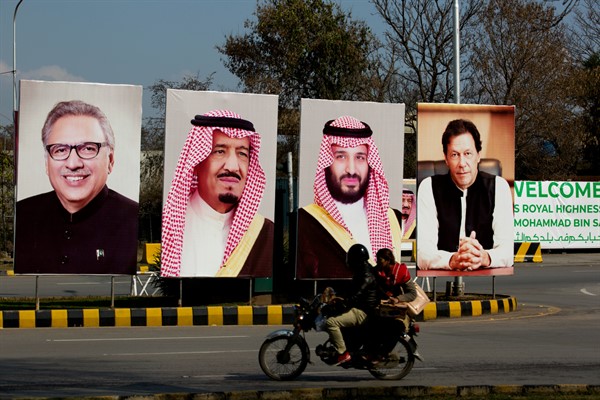The historically close relationship between Pakistan and Saudi Arabia hit a snag recently over differences in how to address India’s decision last year to revoke the special autonomy of Jammu and Kashmir, a Muslim-majority state that is also claimed by Pakistan. Pakistani officials had repeatedly urged Saudi Arabia to convene a meeting of the Organization of Islamic Cooperation, or OIC, to discuss Kashmir, to no avail. Finally, in early August, Pakistan’s foreign minister, Shah Mahmood Qureshi, took the unprecedented step of publicly criticizing Riyadh. Appearing on a TV talk show, he threatened to “call a meeting of the Islamic countries that are ready to stand with us on the issue of Kashmir and support the oppressed Kashmiris.”
If this was a calculated risk to publicly shame the Saudis into action, it clearly failed. Riyadh responded by demanding early repayment of a $3 billion loan to Pakistan, and refused to renew a $3.2 billion oil credit facility. Saudi Crown Prince Mohammed bin Salman also refused to meet Pakistan’s army chief when he visited Riyadh in the immediate aftermath of Qureshi’s statement.
Although Qureshi was heavily criticized domestically for provoking Pakistan’s long-standing diplomatic partner, the fact that there was no public rebuke from the military speaks volumes. In Pakistan, the military has a huge—if not final—say over foreign policy. It is unlikely that Qureshi or any other senior figure from Prime Minister Imran Khan’s government would have taken such a step without the military’s approval.

